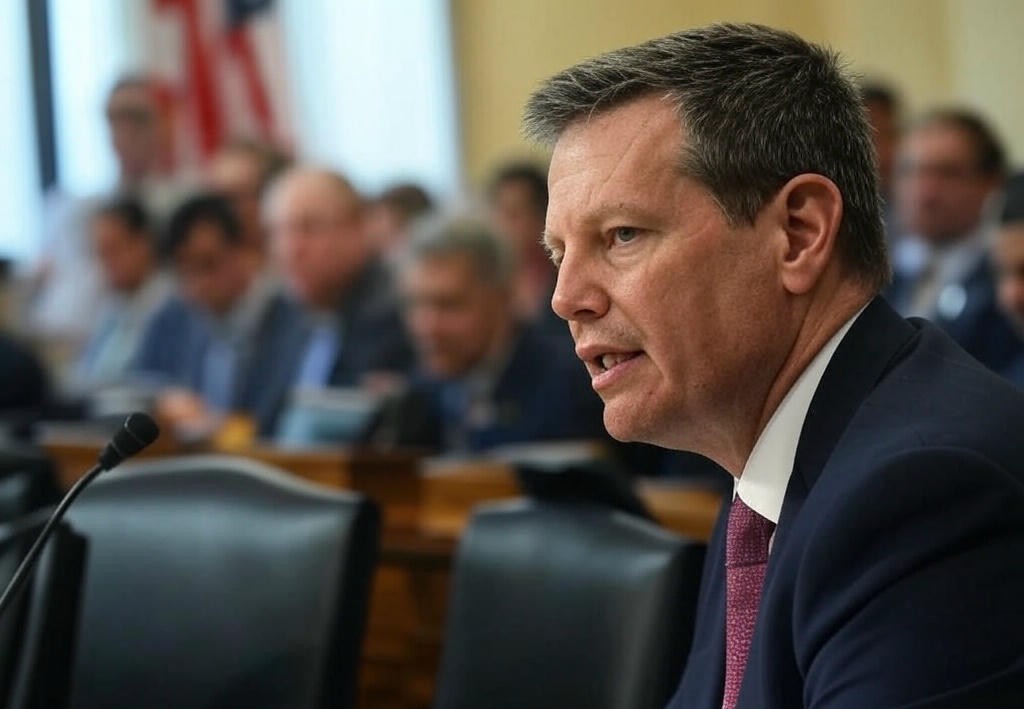The world of cryptocurrency is exciting but often confusing due to unclear rules. Recently the U.S. House Financial Services Committee along with the House Agriculture Committee released a draft bill on crypto market structure. This is a big step toward creating clear regulations for digital assets in the United States.

What Is the Crypto Market Structure Draft Bill?
On May 5, 2025 key lawmakers including Chairman French Hill and Chairman Glenn “GT” Thompson unveiled a discussion draft for regulating the crypto industry. This bill builds on earlier efforts like the Financial Innovation and Technology for the 21st Century Act (FIT21) which passed the House in 2024 but did not move forward in the Senate. The new draft aims to create a clear framework for how digital assets like Bitcoin and Ethereum are regulated in the U.S.
The bill focuses on:
- Defining roles: It clarifies which government agencies like the Securities and Exchange Commission (SEC) and the Commodity Futures Trading Commission (CFTC) oversee different types of digital assets.
- Protecting consumers: It sets rules to ensure crypto projects are transparent and users are safe from fraud.
- Encouraging innovation: It aims to make the U.S. a friendly place for crypto businesses to grow.
Why Do We Need Crypto Regulation?
Cryptocurrencies operate on decentralized systems called blockchains which makes them different from traditional money. Without clear rules it’s hard for businesses to know how to operate legally and users face risks like scams or losing money. The U.S. has lagged behind other countries in creating crypto regulations causing some companies to move to places with clearer laws.
This draft bill is important because it:
- Brings clarity: It defines whether a digital asset is a security (overseen by the SEC) or a commodity (overseen by the CFTC). This reduces confusion for companies.
- Protects users: The bill requires crypto projects to share key information like financial details to avoid fraud.
- Keeps the U.S. competitive: Clear rules can attract crypto businesses to stay in the U.S. boosting innovation and jobs.
Key Features of the Draft Bill
The draft bill includes several practical steps to regulate the crypto market. Here’s a simple breakdown of its main points:
- Clear Definitions:
- The bill defines what counts as a digital asset and sets categories for tokens and exchanges. For example it outlines when a token is decentralized enough to be considered a commodity.
- It also bans the Treasury Department from restricting self custody wallets meaning people can keep control of their crypto without interference.
- Shared Oversight:
- The SEC and CFTC will work together to regulate crypto. The SEC will handle assets tied to investment contracts while the CFTC will oversee digital commodities like Bitcoin.
- This teamwork aims to close gaps in oversight and avoid conflicts between the two agencies.
- Consumer Protections:
- Crypto projects must provide public disclosures, like financial statements to show they are legitimate.
- The bill sets rules for how companies can raise money, ensuring they follow fair practices.
- Support for Innovation:
- The bill encourages research into decentralized finance (DeFi) non fungible tokens (NFTs), and blockchain technology.
- It creates a path for crypto exchanges to register as alternative trading systems which are less strictly regulated than traditional stock exchanges.
- Joint Hearings:
- On May 6, 2025 the digital assets subcommittees of both House committees held a joint hearing called “The Future of American Innovation and Digital Assets.” This allowed lawmakers to discuss the bill and gather feedback from experts.
How Does This Build on FIT21?
The FIT21 Act, passed by the House in 2024 was a landmark moment because it gained bipartisan support with 71 Democrats voting for it. It aimed to clarify the SEC and CFTC’s roles and set consumer protections. However it faced criticism for potentially weakening the SEC’s authority and not addressing decentralized finance (DeFi) fully.
The new draft bill improves on FIT21 by:
- Addressing feedback from stakeholders like crypto companies and regulators.
- Adding provisions for DeFi and NFTs to ensure these growing areas are included.
- Strengthening consumer protections while keeping the U.S. attractive for crypto businesses.
What’s Next for the Bill?
The draft is still a “discussion” version meaning it’s not final. Lawmakers are seeking public feedback to make changes before introducing it as a formal bill. The joint hearing on May 6 was the first step in this process. Some expect the bill to move forward after the August 2025 recess but it needs to pass both the House and Senate to become law.
There are challenges ahead:
- Senate Approval: The Senate has been slower to act on crypto legislation. Some senators like Sherrod Brown are skeptical of crypto which could delay progress.
- Political Factors: With President Donald Trump’s administration supporting crypto there’s momentum but debates over his family’s crypto businesses could raise concerns about conflicts of interest.
- Balancing Act: Lawmakers must balance consumer protection with innovation. Too many rules could push companies away while too few could harm users.
Why This Matters to You
If you are a crypto user, investor or business owner this bill could affect you:
- Safer Investments: Clear rules and disclosures mean less risk of scams or failed projects.
- More Opportunities: A regulated market could attract more crypto businesses to the U.S. creating jobs and new services.
- Global Impact: As the U.S. sets its rules other countries may follow shaping the global crypto market.
Conclusion
The U.S. House Financial Services Committee’s crypto market structure draft bill is a promising step toward a regulated, safe and innovative crypto industry. By defining roles for the SEC and CFTC protecting consumers and supporting innovation it aims to make the U.S. a leader in digital assets. While it’s still early the bill shows lawmakers are serious about tackling the challenges of crypto regulation.
